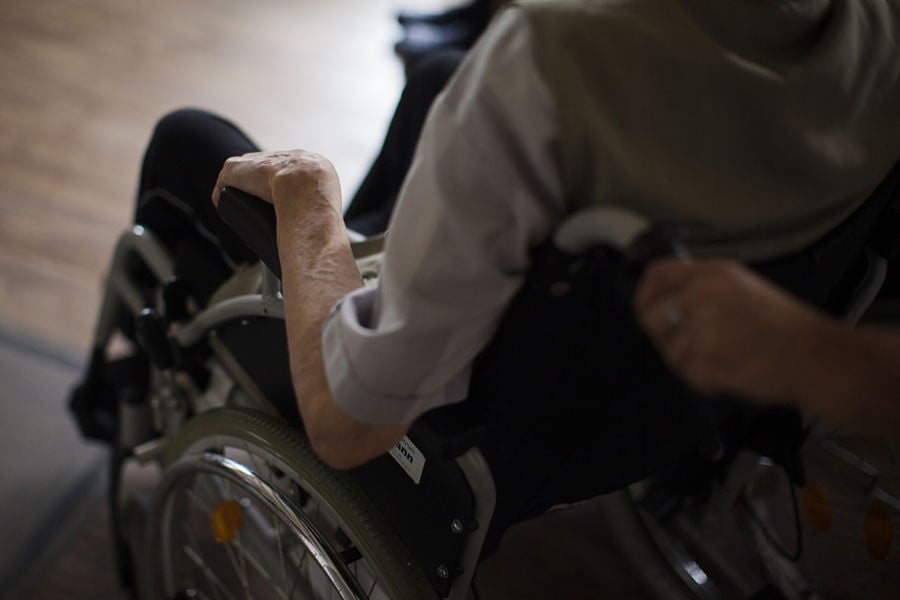

There’s a good reason why airlines ask passengers to put on their own oxygen masks before helping others. Otherwise, the passenger would be unable to breathe and incapable of helping anyone else.
The same logic applies to caregivers and their finances, according to a new study.
Fidelity’s American Caregivers study released this week showed that 7 out of 10 caregivers are so focused on caregiving duties that they put off addressing their own needs.
Fidelity’s survey examined the emotional and financial concerns of caregivers providing support for a loved one with a disability or special needs.
On the financial front, the survey showed a majority of respondents rely primarily on a combination of their own or a family member's work income (68%) and government benefits (52%) to pay for care. Furthermore, 44% of caregivers took on their responsibilities by default rather than volunteering or through family conversations.
In other words, they hadn't planned on being caregivers, they were simply thrust into the position without prior consideration of their own personal or financial circumstances.
“Caring for a loved one with a disability often comes with responsibilities above and beyond the normal demands of life, which is why it’s so vitally important to build a strong network of support,” said Stacey Watson, senior vice president of life event planning at Fidelity Investments. “Sometimes people, particularly women, feel guilty asking for help, but it’s important to understand that asking for assistance from others is a sign of strength, not weakness. It’s also a two-way street, so if someone you know is in this situation and asks, please move quickly and do something.”
Planning ahead can have a profound impact on providing greater peace of mind. The study looked at future caregivers and found that 45% feel completely or somewhat prepared to take on responsibilities if they were unexpectedly required to tomorrow. Only 1 in 5 felt completely unprepared. Those who feel prepared tend to cite emotional reasons, while the unprepared cite financial factors, according to the study.
“Balancing caregiving and planning for your loved one with special needs can be difficult, and for those who are anticipating taking on these responsibilities, there really is no time like the present to prepare,” Watson said.
Fidelity suggests one practical way for caregivers to improve their situation is to actively seek out help from their employer. Nevertheless, the study showed only 54% of caregivers indicated they looked into the benefits available through work.
When caregivers did inquire about their benefits, however, respondents said they often unexpectedly found offerings such as job flexibility, paid and unpaid leave, employee assistance programs and life insurance. Fidelity pointed out that other types of benefits plan sponsors often offer include health savings accounts, care coordination programs, legal plans, back-up care, remote work opportunities, compressed work schedules, meditation and stress management tools, and counseling.
“I’m grateful for Fidelity’s effort to spotlight this reality for caregivers. Financial advisers need to treat a period of care more as a certainty in retirement planning and less as a ‘what if’ contingency," said Thomas West, senior partner at Signature Estate & Investment Advisors and the creator of the Lifecare Affordability Plan.
"Our industry can guide, advise and support our senior clients through a time of being ‘less able’ so much better than how we serve today," West said. "It’s high time for financial advisers to stop dismissing planning for care as somebody else’s job.”

While industry statistics pointing to a succession crisis can cause alarm, advisor-owners should be free to consider a middle path between staying solo and catching the surging wave of M&A.

New joint research by T. Rowe Price, MIT, and Stanford University finds more diverse asset allocations among older participants.

With its asset pipeline bursting past $13 billion, Farther is looking to build more momentum with three new managing directors.

A Department of Labor proposal to scrap a regulatory provision under ERISA could create uncertainty for fiduciaries, the trade association argues.

"We continue to feel confident about our ability to capture 90%," LPL CEO Rich Steinmeier told analysts during the firm's 2nd quarter earnings call.
Orion's Tom Wilson on delivering coordinated, high-touch service in a world where returns alone no longer set you apart.
Barely a decade old, registered index-linked annuities have quickly surged in popularity, thanks to their unique blend of protection and growth potential—an appealing option for investors looking to chart a steadier course through today's choppy market waters, says Myles Lambert, Brighthouse Financial.
